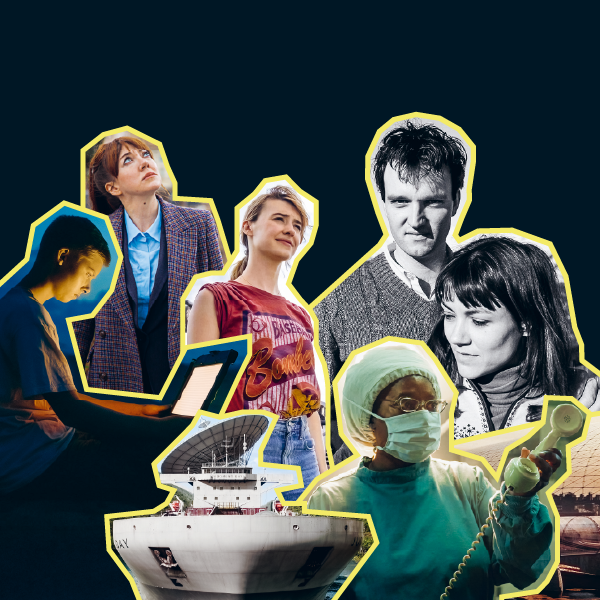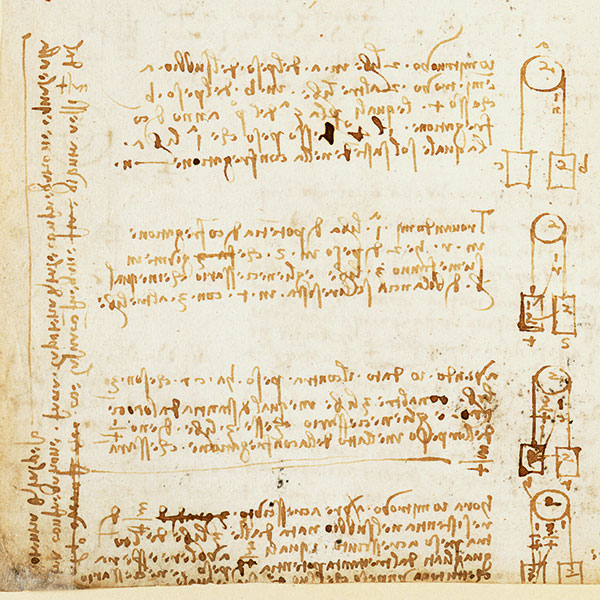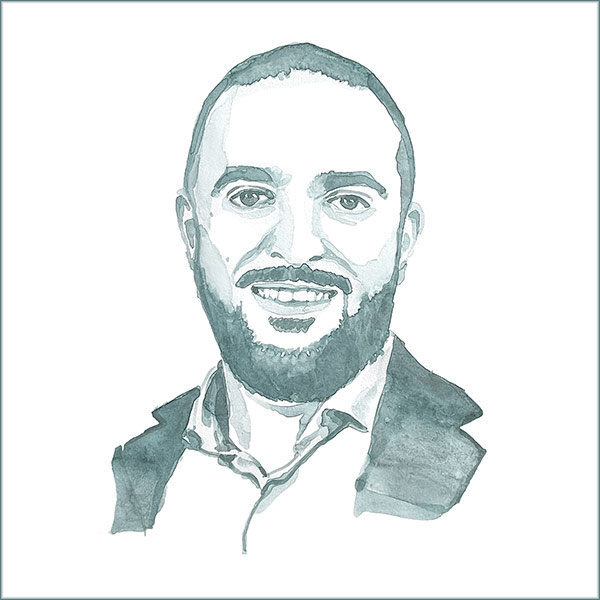SERENDIPITY
The magic of unexpected discoveries
From penicillin to x-rays and Velcro, science is full of fortuitous findings. But not all serendipity is the same. An overview of different ways to force your luck and how to preserve it under the pressure of modern science.

From burrs stuck to his hiking trousers to Velcro – the engineer George de Mestral demonstrates his invention in Nyon in February 1959. | Image: Alain Gassmann / Photopress-Archive / Keystone
The Covid-19 pandemic was full of serendipitous moments for Michael Doser, a physicist at CERN in Geneva. He finally found that he had the time to peruse the latest literature at his leisure. This gave him new ideas for his research into antimatter, helping to generate fresh insights. He claims that we need more instances like this. “Serendipity hasn’t been kind to high-energy physics in the last 30 years; it would be time for a serendipitous discovery to be made and bring the field forward”, he says.
Inspired by an oriental tale
What Doser longs for is serendipity, a broadly used term in today’s science that means lucky accidents or circumstances that lead to discoveries. One of the most often-mentioned examples relates how the Scottish microbiologist Alexander Fleming mislaid a petri dish only to find out that mould produces penicillin that kills bacteria. This was the birth of antibiotics, which revolutionised medicine.
The word ‘serendipity’ was coined by Horace Walpole, an English writer, collector, and prolific minter of new words for the English language – other creations of his are ‘beefy’, ‘sombre’, and ‘nuance’. In 1754 Walpole recalled in a letter the story of ‘The Three Princes of Serendip’ (today’s Sri Lanka) in which the princes look for a missing camel using luck, good fortune and “always making discoveries, by accidents and sagacity, of things which they were not in quest of”. But the term found fame only in the 20th century.
Of course, surprising discoveries were being made long before Walpole named them. “We find them in workshops where craftspeople improved pottery or in kitchens where cooks invented new recipes mixing ingredients”, says the science historian Lorraine Daston at the Max Planck Institute for the History of Science in Berlin, Germany. Modern science is packed with serendipitous examples. The French mathematician Henri Poincaré, after a month of futile attempts to prove a conjecture called ‘Fuchsian functions’, found the solution in a flash of the mind while on a bus in Normandy. Charles Darwin had his aha moment on natural selection by reading the books of Thomas Malthus on population growth. The Swiss Nobel laureate Jacques Dubochet discovered how to solidify water without creating ice by changing the coolant, thereby inventing a way to conserve biological samples for electron microscopy. And the unsought side effects of Viagra became evident during a clinical trial to treat heart pain.
“Serendipity is so widespread because it is a measure of our ignorance of natural phenomena. If nature is much larger than the part we have explained so far, then I expect that, through new experiments, observations, errors and anomalies, we will discover some things that we never imagined existed”, says Telmo Pievani, a philosopher of science at the University of Padua, Italy, and author of the book “Serendipity: The Unexpected in Science”.
To be able to recognise and foster serendipity, a more precise definition is necessary. Historians and philosophers of science are converging towards a broad interpretation, while also questioning if today’s science really favours accidental discoveries.
Accidents, detectives and thunderbolts
Talking only about pure, isolated chance may be misleading according to Daston. “The kind of serendipity that is relevant for scientific discovery is not a pure thunderbolt from the blue, but rather is the researcher’s mind bent onto something, sharpened to see every little hint that might be relevant”, she says. Daston’s understanding stems from the detective attitude of the Princes of Serendip, meaning it is quite large and happens all the time.
Pievani classifies serendipity according to the degree of chance involved. He recognises the detective approach as serendipitous but also as just one kind, the least accidental, in fact. His main interest is in what he calls ‘strong serendipity’, which is finding something you didn’t even know you were looking for, thanks to chance and shrewdness. It’s cases like the Swiss engineer George de Mestral, who noticed burrs stuck to his trousers after hiking in the Alps and later invented Velcro, or like the path that led to the discovery of Viagra.
Ohid Yaqub, a social scientist at the University of Sussex, UK, made a different classification. After screening hundreds of documented examples of serendipity, he categorised them into four groups based on researcher motivations and outcome. First are those that lead to solutions outside of the original scope, e.g., the discovery of chemotherapy after an accidental explosion of mustard gas destroyed the lymphatic glands of soldiers in 1943. Secondly, those that lead to a targeted breakthrough after taking a surprising path, e.g., Flemings’ discovery of penicillin. Thirdly, untargeted research that brings about an unintended solution for an existing problem, e.g., the German physicist Wilhelm Röntgen accidentally discovering x-rays. Finally, there is research that solves a problem that had never been identified, as was the case of the French chemist Édouard Bénédictus who first stumbled upon shatterproof glass and then thought of using it in cars.
Unfavourable conditions in today’s science
Yaqub also identified some mechanisms of serendipity, such as an individual’s acumen, errors or controlled sloppiness. Cooperative networks and exchanges can also induce accidental findings – or, if done badly, prevent them by way of the echo-chamber effect. Not everybody can spot happy accidents. “Put me in a lab and nothing happens”, says Daston. Researchers should have “an immense background knowledge, and a laser beam-like attention”, she adds.
Another important precondition is freedom: “Since the nature of science is open-ended, the freedom to pursue a line of inquiry is important for making serendipitous events happen”, says Marcel Weber, a philosopher of science at the University of Geneva. Freedom, he adds, also unleashes creativity. And then there is time, which “is the one thing that the Princes of Serendip have”, says Daston. For Doser, “10 percent free time would suffice to follow random threads”. He also values encounters and conversations, strictly in person: “A lot of the magic at CERN and at conferences is bumping into people from different fields, starting to talk to each other, and then recognising that together, you’ve come up with a new idea to follow”.
Science in the 21st century, however – with its funding and evaluation structures that advocate control mechanisms and reward immediate results – seems at odds with serendipity. “Researchers are under immense pressure to be productive and can’t do what Darwin or Poincaré did, which is to allow themselves time to shift to another task. It’s a regime that doesn’t favour serendipity”, says Daston.
How to get luckier
Whether serendipity is declining is difficult to measure. Yet, its enemies are out there: haste, the uncritical use of big data, algorithms, and excesses of technical specialisation. Doser also questions the use of AI: “ChatGPT can talk about the past with great expertise, but if you ask it to predict the future, it’s going to fail miserably”. He even queries ChatGPT and Google with new ideas: no result means he’s on the right track.
To get more serendipitous, Daston advocates slow science. She likes the idea of a colleague of hers: The evaluation system should only allow a maximum number of publications in the lifetime of a researcher, while only five publications should be considered by evaluation panels. Weber stresses the importance of harvesting serendipitous outcomes and calls on the funding agencies “not to oppose a change in research plans induced by them”.
For his part, Doser wants to create more events where scientists across disciplines can meet and truly interact. He was one of the initiators of ‘Sparks!’, the serendipity forum at CERN launched in 2021, which gathers experts from the most diverse avenues around a topic and spurs them to interact and leave their comfort zones – last year’s AI conference brought together ethicists, philosophers, and experts in neural networks and microbiology. “Serendipity is like an accelerator; it is essential to science. We cannot foresee what will come out, but we can foster some conditions under which it might appear”, he says.




